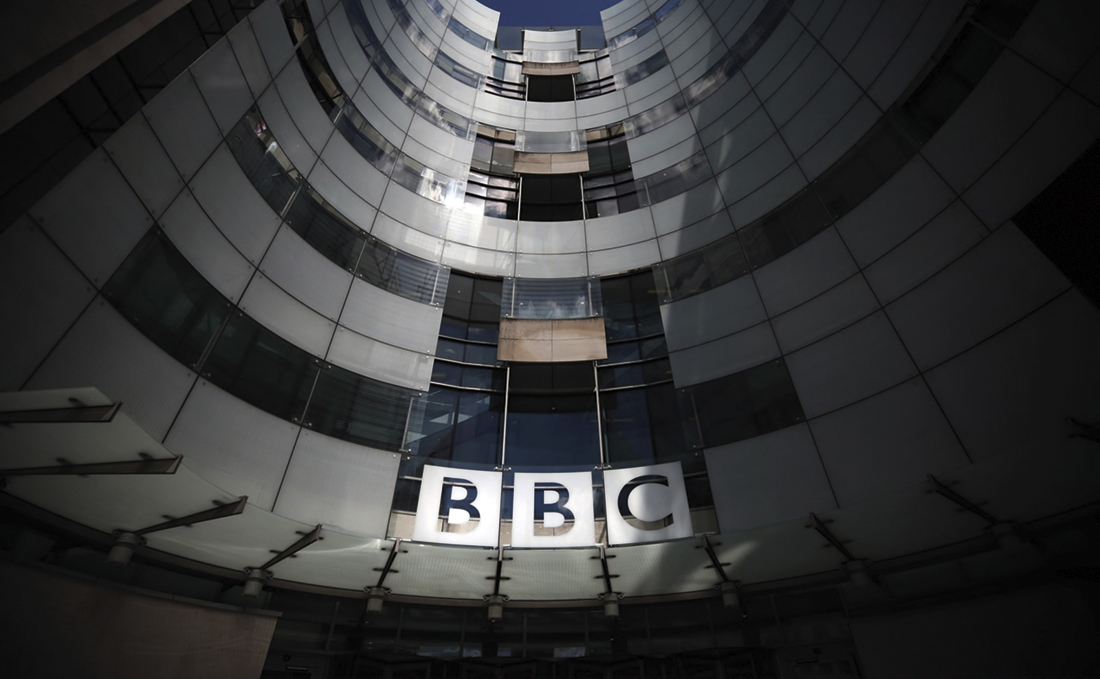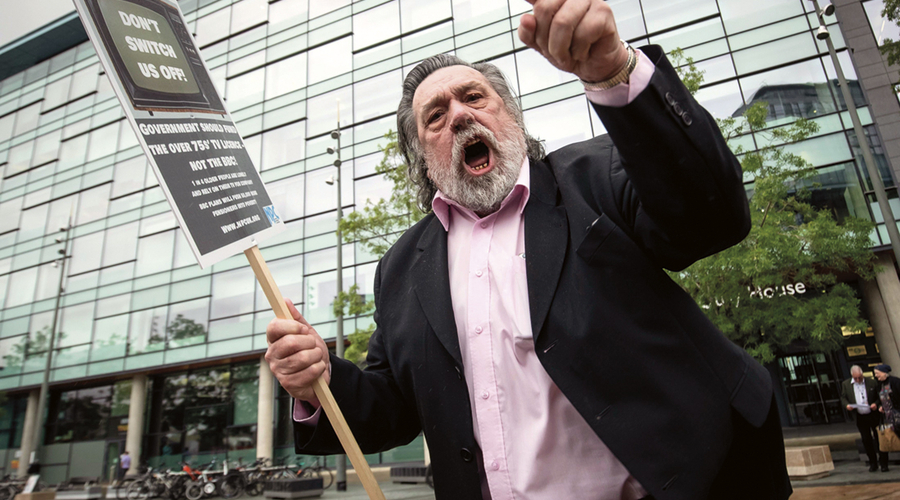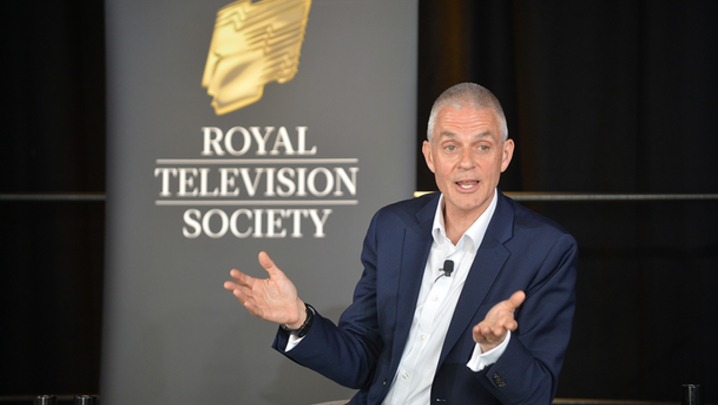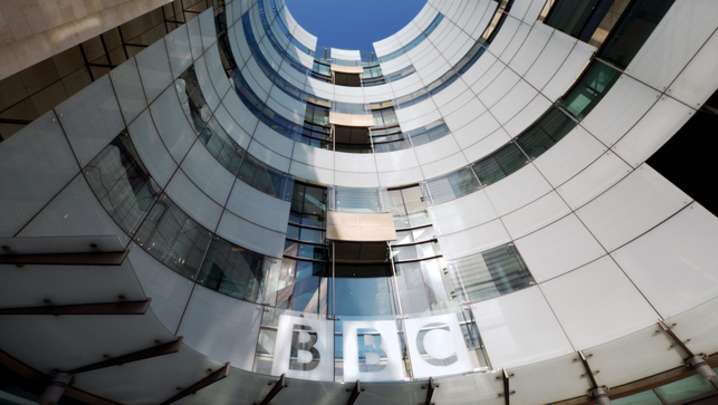Torin Douglas reveals how the row over free licences for the elderly is weighing on the corporation
On 10 June, the licence fee time bomb – primed by Chancellor Gordon Brown and set ticking by his successor George Osborne – duly exploded, as forecast back in February’s Television*.
By granting the over-75s a free TV licence (Brown) and then transferring the cost and responsibility from the government to the BBC (Osborne), the two chancellors locked the corporation in a no-win situation. Claire Enders, of Enders Analysis, argues that the deal was “illegitimate” and never affordable: “It was a lose-lose for the BBC, its viewers and listeners.”
Had the BBC taken over the full cost of the free licences, this would have cost it £745m a year – rising to £1bn a year in the next decade, as the over-75 population grew. The corporation said this was a fifth of its budget, equal to the cost of running BBC Two, BBC Three, BBC Four, the BBC News channel, CBBC and CBeebies. When sceptics accused it of “shroud-waving”, the broadcaster pointed to the figures set out in its annual report.
But if the corporation decided not to pick up the whole bill, and chose a lesser option, it would then be accused of reneging on its agreement with the government. Which is exactly what happened when it announced its decision on 10 June.
From June 2020, the BBC will pay for the licences of only the poorest over-75s, those in receipt of pensions credit. They account for just over a quarter of the current recipients and will cost the BBC £250m a year.
“This has not been an easy decision,” says Director-General Tony Hall. “I believe we have reached the fairest judgement after weighing up all the different arguments. It would not be right simply to abolish all free licences.
“Equally, it would not be right to maintain them in perpetuity, given the very profound impact that would have on many BBC services.”
The resulting explosions, in Westminster and on front pages, were every bit as loud as one would expect, despite the BBC’s efforts to muffle the blasts with mounds of economic reports and surveys.
The broadcaster’s consultation paper had invited licence-payers and stakeholders to comment on a range of options: keeping the current concession; removing it entirely; discounting the fee; raising the age threshold to 80; or giving a free TV licence to any household where someone is over 75 and receives pension credit.
There were 190,000 responses – linking the free licence to pension credit was the leading option for reform.
All to little avail. Critics – including pensioners’ groups, politicians and former BBC personalities – accused the corporation of going back on its word.
"There has been recognition by Age UK and others that the government is the wicked fairy here."
In the Spectator, Toby Young said he had good reason to believe that the bill would be picked up by the BBC: “According to the BBC News website, dated 6 July 2015, the Beeb would ‘cover the cost of providing free TV licences for over-75s’ and ‘in return… the licence fee will rise with inflation’.
“But on Monday the BBC announced that it would not be paying for this after all, even though the licence fee went up in line with inflation in 2017 – for the first time since 2010 – then again in 2018, and again this year.”
Young continued: “The odd thing is that [Hall] boasted in 2015 about what a good deal he’d negotiated – and that included the commitment to providing free TV licences to everyone over 75. ‘Far from being a cut, the way that this financial settlement is shaped gives us, effectively, flat licence-fee income across the first five years of the next Charter,’ he said. ‘If anything, I believe it will put the BBC slightly up.’”
Supporters of the BBC, such as Voice of the Listener & Viewer (VLV), said it was a mistake for the corporation to take on responsibility for a policy relating to a welfare benefit.
The group has long wondered why the broadcaster put such a brave face on the deal and why the Director-General and members of the BBC Trust did not resign (or even threaten to) when Osborne bounced the corporation into paying for the free licences. A previous Director-General, Mark Thompson, threatened to resign when the Chancellor first tried the move in 2010.
One BBC Trustee has now explained what happened. At the VLV conference in May, Richard Ayre said that culture secretary John Whittingdale MP had rung the BBC Chair, Rona Fairhead, and told her that the Chancellor had decided the BBC would now take responsibility for the payment for over-75s; that he would announce it two days later; and that [the Government] required the BBC to give its formal agreement within two hours.
“Needless to say, they refused,” said Ayre, and, after “a series of frenetic discussions with DCMS and the Treasury, there were concessions. The transfer would not be immediate but would take place over five years; top slicing would end (the BBC had had to fund the roll-out of high-speed broadband); people who only accessed BBC content through the iPlayer would have to pay a licence fee (a very significant gain for the BBC); and the licence fee for the next five years would be linked to inflation, having been flat for the previous two licence-fee settlements.”
Ayre confirmed that some Trustees had discussed resigning. “But we were eight weeks away from the start of formal talks about the next BBC Charter,” he recounted. “Had we resigned, there would be no Trust in place for the first five months of the Charter negotiations, no representative of the licence-fee payer.
“Even worse, if we resigned, the Government might have used an order in council to suspend that part of the Charter relating to the Trust and asked Ofcom to take over responsibility for the BBC. That’s why we didn’t resign. I leave it to you and others to decide whether we were right or not.”

Right or not, we are where we are. And since 10 June things have not gone well for the BBC. To stretch the analogy, the licence-fee time-bomb is now more like a monstrous string of firecrackers that continues to detonate.
On 2 July, the BBC revealed a big uplift for women presenters in the section of its annual report detailing pay for talent and staff. Good news? No: “BBC gives stars £11m pay rise as it cuts free TV licences” was the splash in the Daily Telegraph. Its leading article argued that “BBC salaries come at pensioners’ expense”.
“BBC’s new kick in the teeth for over-75s,” trumpeted the Daily Mail. “They’re axing free pensioner licences. But latest wage bill soars to £1.5bn.” Over four more pages, it listed the top 73 BBC earners, under the headline, “So much for ‘struggling’ BBC”, alongside a coruscating article by “an outraged ex-BBC stalwart” – former war reporter Martin Bell.
Downing Street asked why the BBC wasn’t showing more restraint over pay. BBC Chair Sir David Clementi responded, dismissing the idea that cutting stars’ pay would allow all over-75s to have free licences. Capping salaries at £150,000 would save only £20m of the £745m, he said. “The sums don’t add up.”
The charity Age UK continues to demand that the government – not the BBC – should pay for the free licences. It points out that the take-up of pension credit is low, and it fears the new system may cause chaos and be deeply upsetting to older people.
It lobbied the Conservative leadership candidates to keep the party’s manifesto promise to fund the free licences until 2022. The organisation recruited stars such as Dame Helen Mirren and Sir Lenny Henry to its ‘Switched Off’ campaign, and its petition has secured more than 600,000 signatures. Despite this, most newspapers kept the heat on the BBC, and so did politicians.
Two weeks after the annual report, Hall gave evidence on the issue to MPs on the Digital, Culture, Media and Sport Committee, in what the Telegraph called “an often bad-tempered appearance” and the Times called “heated”. Again, he was forced to deny that the BBC was going back on its agreement with the government, saying, “I really refute that and I really resent that.”
He insisted that there was a difference between paying for the free licences and taking responsibility for (and deciding) the policy. “As part of the settlement in 2015, it was clear that reform of the over-75s issue was on the table and everybody knew that reform was likely. Not inevitable, but likely,” he said.
More negative headlines followed, and Will Wyatt, former Chief Executive of BBC Broadcast, laments that they won’t be the last, as the new scheme goes forward and licence prosecutions continue.
“An outcry was inevitable, whatever the BBC did, and I don’t think the corporation has handled it badly,” he says. “Although it has taken the brunt of this, there has been recognition by Age UK and others that the government is the wicked fairy here – but I don’t think this will help. I don’t see any chancellor taking the burden back on the public finances.”
VLV Chair Colin Browne believes that the most important thing now is to make sure future licence-fee settlements are never again agreed in secret. He is pleased that the BBC has called for serious consideration of VLV’s suggestion to parliament that a statutory commission be established to set the level of the licence fee in the future.
Hall told the MPs: “The last two settlements have been made in the dark and without proper consultation. It is vital that future decisions are evidence-based and made after proper consultation and scrutiny. We need to find a better way.”
Meanwhile, it must still deal with the fallout from the last settlement.
‘BBC faces free-fee quandary’, Television, February 2019







